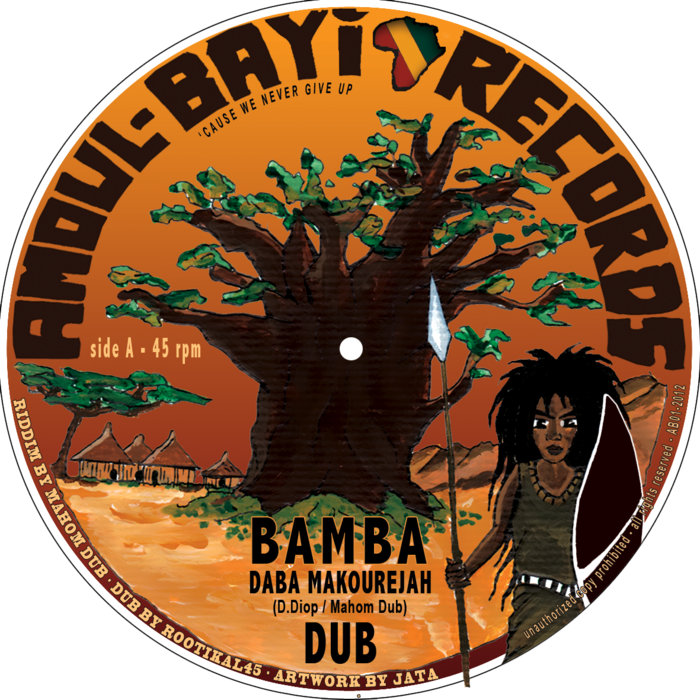
Daba Makourejah – Bamba – Daba Makourejah – Ganja Tree – Cherif Soumano – Mahom Dub
this blog is GROOVY – check out great Soul, Funk, Jazz, Hip Hop, Bass, Breaks , Reggae, House n many more TUNES
Conscious reggae, my friends, is a vibe like no other! It’s the soulful fusion of rhythm and message that has been rocking our hearts and minds since its inception. So grab your djembe and let’s take a ride through the colorful history of this reggae subgenre that calls for awareness, positivity, and social change.
Reggae first emerged in Jamaica during the late 1960s. While it was a melting pot of influences—ska, rocksteady—conscious reggae found its footing with artists who wanted to address social issues head-on. The genre became synonymous with messages about love, unity, resistance against oppression, spiritual elevation, and cultural pride.
Now enter stage left: Bob Marley! Arguably the most iconic figure in reggae history! His lyrics were not just catchy; they were deep reflections on life itself. With classics like “Get Up Stand Up” and “One Love,” Marley became a global ambassador for conscious reggae.
The Rastafarian movement played an instrumental role in shaping conscious reggae’s themes. Rastas emphasized spirituality, repatriation to Africa (Zion), dreadlocks as symbols of strength (and definitely not just for fashion!), and stories woven into their music reflecting their culture’s struggles against colonialism.
Funny Fact: Did you know Bob’s middle name was Nesta? Imagine introducing him as “Nesta Marley” at parties!
As conscious vibes spread beyond Jamaica throughout the ’70s into the ’80s, groups like Steel Pulse started making waves internationally—a surge fueled by both captivating melodies AND deeply rooted social messages.
Throughout history there have been numerous artists contributing to this uplifting soundscape:
Peter Tosh: Not only did Tosh bring funkiness with tunes like “Equal Rights,” but he also took on quite an edgy approach by openly advocating for marijuana legalization! Who knew one could sway crowds over herb?
Burning Spear: This legend didn’t just burn; he ignited consciousness worldwide with tracks promoting African heritage—but really pondered why everyone else had more stylish threads than him? We suspect it was his ‘militant’ style!
As we cruised through time into the ’90s—bam—the resurgence happened! More rootsy sounds came back onto playlists thanks to bands such as Black Uhuru or Culture—with lead vocalist Joseph Hill rocking those killer locks while delivering powerful lyrics straight from experiences lived!
Funny Moment: In an interview once asked if he ever got tired singing about serious topics all day long; Joseph replied: “Nah man! I enjoy singing so much sometimes I do it in my sleep!” Now THAT’S dedication!
And don’t forget about legendary collaborations that sprinkled some magic dust over us—all those sweet jams featuring hip-hop stars lending their voice on remixes made every jam session unforgettable!
Fast forward to today: what’s stirring up now? New school artists are flying high with styles blending funkiness alongside tradition—for example:
The soundscape today encompasses everything from dancehall rhythms mixed flawlessly into classic roots songs without missing out on essential vibes urging society toward enlightenment—even when rhyming might mean dancing till dawn too hard after work hours ended yesterday…
As we wrap this groovy journey through conscious reggae’s past—it becomes crystal clear how crucial art is within movements aiming at creating awareness across generations everywhere.
So when listening next time remember those inspiring values flowing behind every beat!
Whether you’re jamming alone or groovin’ at some local festival under blazing sun—and if someone asks you about it—you can happily share stories filled with vibrant colors echoing laughs around our legends along way…
Peace out folks; Keep vibin’ high because good consciousness never goes outta style 🌞✌️

Daba Makourejah – Bamba – Daba Makourejah – Ganja Tree – Cherif Soumano – Mahom Dub